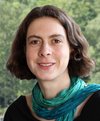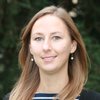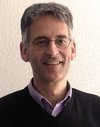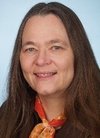Plenary
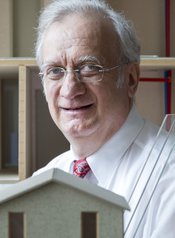 © Peter Cook © Peter Cook
|
Wolfgang Feist Dr Wolfgang Feist, a physicist by training, is the founder and director of the Passive House Institute (PHI), an independent research institute founded in 1996 in Darmstadt, Germany. He has dedicated his career to the development of solutions for energy efficient buildings and increasing industry capacity worldwide through the Passive House Standard. Having researched at Tübingen, Kassel and Lund University since 1973, Feist was responsible for the planning and construction of the first Passive House building in 1991, which almost 25 years later still performs as initially designed. Since 2008, Dr Feist is also a professor of building physics at the University of Innsbruck, where he has worked within the Department of Energy Efficient Construction since 2008 to spur development in the region of Tyrol, Austria. Among his many recognitions, Dr. Feist has been awarded the following:
|
|
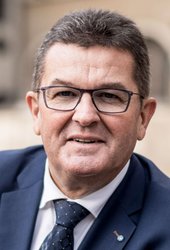
|
Franz Josef Pschierer Franz-Josef Pschierer studied politics and social science at the University of Augsburg and worked in Public Relations at the Swabian Chamber of Crafts from 1984 until 1986. He then worked at the German Newspaper for Craftsmen, where he became vice chief editor in 1989. He has been part of the Bavarian Parliament since 1994 and was head of the committee for economy, infrastructure, transportation and technology from 2003 until 2008. From 2008 until 2013 he was state secretary in the Ministry of Finances in Bavaria and since 2013 he is state secretary in the Ministry of Economic Affairs and Media, Energy and Technology in Bavaria. Pschierer is married and father of two children.
|
|
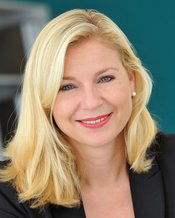 © Astrid Schmidhuber © Astrid Schmidhuber
|
Stephanie Jacobs Stephanie Jacobs studied law and is the head of the health and environment division in the state capital of Munich. Before that, she was the speaker for the former State Minister of Environment and Health, Werner Schnappauf, a member of a parliamentary group in Bavaria and Vice Director of the European Division in the Bavarian State Ministry of Environment.
|
|
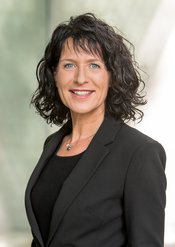 © Astrid Eckert © Astrid Eckert
|
Christine Degenhart Christine Degenhart has been president of the Bavarian Chamber of Architects, which represents over 23 000 architects, since July 1, 2016. She has dealt with forward-facing topics like barrier-free buildings and quality of life in multigenerational buildings in several publications and is also a member of the Country Council of Upper Bavaria and leads her own architectural firm in Rosenheim.
|
|
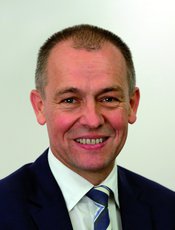 © Birgit Gleixner © Birgit Gleixner
|
Michael Kordon Michael Kordon has been Vice President of the Bavarian Chamber of Civil Engineers since 2014. Prior to this, he was in leading positions at the building authorities of Weilheim, Augsburg and Swabia, and the motorway authority of southern Bavaria. Kordon is a member of the VSVI (association of traffic and transport engineers in Bavaria) and the committee of accreditation at the ACQUIN-Institute.
|
|
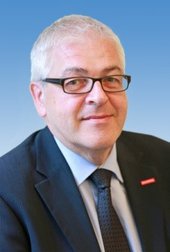
|
Dieter Vierlbeck Dieter Vierlbeck studied electrical and industrial engineering in Munich and is CEO of the Bayrischer Handwerkstag e.V. (Association of Bavarian Craftsmen) and Deputy Managing Director of the Chamber of Crafts for Munich and Upper Bavaria. He also works in an honorary capacity in the Educational Institute of the Bavarian Economy Association and the RKW Bavaria. He has been the federal chairman of the Consortium of Church and Crafts since 2014.
|
|
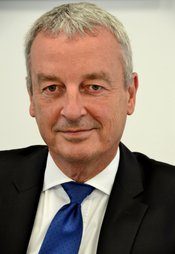 © Ulrike Deuscher © Ulrike Deuscher
|
Frank Junker Frank Junker is a skilled lawyer, who as CEO, is responsible for the management of ABG FRANKFURT HOLDING. Owning more than 52,000 apartments, the ABG offers living space for almost a quarter of Frankfurt's residents. The ABG also offers more than 33,000 other rental units. The holding prides itself on providing modern and energy-efficient infrastructure in its apartments. It works in project development and serves third-parties like the Fraport AG od the Messe Frankfurt GmbH with architectural and engineering services. More than 2,800 ABG dwellings have been built in the Passive House Standard.
|
|
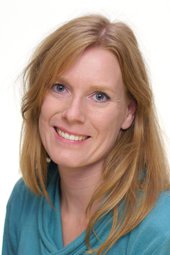
|
Janna Schönfeld Janna Schönfeld has been working for 3.5 years in the Executive Agency for Small and Medium-Sized Enterprises (EASME) of the European Commission as Project Adviser on energy in buildings, in particular on deep retrofit. Before, she worked for the NGO APRODEV/ACT Alliance as Policy Adviser on Climate Change and Development, for the European Commission on energy in developing countries, for the EU Energy Initiative Partnership Dialogue Facility, the German Technical Cooperation GIZ and in the European Parliament. She holds a Master in International Studies and a Bachelor in European Studies.
|
|
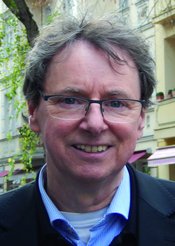
|
Burkhard Schulze Darup Burkhard Schulze Darup studied architecture at the Technical University of Berlin and has been a self-employed architect promoting resource efficiency and Passive House Components since 1987. He did his PhD in 2003 at the University of Hannover on the topic of "Energy-efficient retrofits of residential buildings with factor 10". In Nuremberg, he initiated the Kompetenzinitiative EnergieRegion Nürnberg in the field of energy efficient retrofitting and also works as an environmental consultant working for many different committees and institutes.
|
|
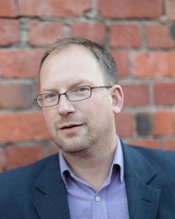
|
Elrond Burrell Elrond Burrell studied building science and architecture at the Victoria University of Wellington. He has been a certified Passive House Designer since 2016 and the owner "VIA architecture" since 2016. There, he designs high-performance buildings in compliance with the international Passive House Standard. Besides his profession, he was a guest speaker at several British universities and writes and publishes articles on his Passive House Blog "Passive House in Plain English & More".
|
|
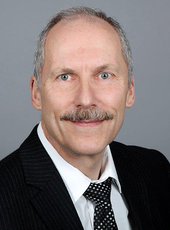
|
Frank Heidrich Dr. Frank Heidrich was born in Annaberg in 1954. After finishing his studies in economics and doing his PhD, he worked as a research associate at the building academy in the German Democratic Republic. He then worked as a department head in the GDR Federal Ministry of Building. In 1990 he became an advisor in the Federal Ministry of Building, Regional Planning and Urban Development. From 2007 he worked as Head of Division in the Federal Ministries for Transport, Construction and Urban Development (BMVBS) and for Economics and Energy (BMWi). Since 2015, he has been Head of the II C Department Heat and Efficiency in Buildings, Research at the Federal Ministry for Economic Affairs and Energy at the BMWi.
|
|
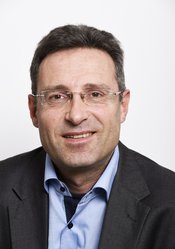
|
Josef Hochhuber Josef Hochhuber is a skilled engineer in the field of environmental engineering. He finished his studies at the Technical University of Berlin and in 1999, he completed his PhD at Montanuniversität Leoben. From 2011 until 2013 he was working for the Bavarian State Ministry of Environment and Health and since 2014, he has been Vice Head of the Department for Energy Affairs in the Bavarian State Ministry of Economic Affairs and Media, Energy and Technology.
|
|
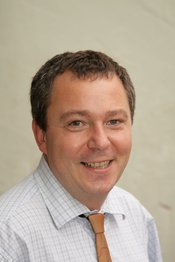
|
Franz Freundorfer After finishing high school and his carpentry apprenticeship, Franz Freundorfer studied wood engineering with a specialisation in window construction. During a two-year period when he worked as a freelance collaborator for a window construction company, Freundorfer developed an interest in Passive House Components. From then on, between 1995 and 2011, he brought more than 20 compatible Passive-House wooden window constructions to the market, receiving European patents for seven of them. Freundorfer also deals with development tasks for window manufacturers. Besides this, he also teaches in the fields of window construction, building physics, Passive House and PHPP. He has given lectures to future Passive House Designers since 2007. Freundorfer practices what he preaches, going home to his very own Passive House which he shares with his family.
|
|
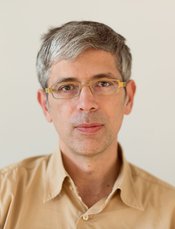
|
Michel Wassouf Micheel Wassouf is a pioneering architect, designing energy efficient buildings in a Mediterranean/hot climate. He is a founding member of the Spanish Passive House Association, with over 20 years of experience as an architect, designing buildings in all of the planning stages. Since 2015, Wassouf has been an official Passive House building certifier. His firm "Energiehaus Arquitectos" is a leading firm for teaching the Passive House Standard, specialised in the social and cultural challenges in the Mediterranean countries. He regularly appears as an expert for energy efficiency and renewable energy across the Mediterranean, e.g. in MED-strategic projects like MARIE and ElihMed (funded by the EU).
|
|
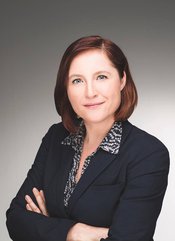
|
Simone Kreutzer Simone Kreutzer is one of the most important pioneers of the Passive House in Sweden. She is founder and CEO of IG Passivhus Sverige, which has over 65 member companies. Simone Kreutzer graduated in engineering and is an architect and certified Passive House planner. She also brought the CEPH- and certified Passive House Tradesperson training to Sweden and works on several internationally certified Passive House projects as a leading consultant.
|
Workshops
Workshop: PHPP Basics (in German) |
||||
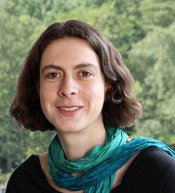
|
Esther Gollwitzer Esther Gollwitzer studied architecture at both the Technical University of Darmstadt and at KTH in Stockholm. Subsequently, she developed detailed designs of non-residential and commercial PV systems while working at Goldbeck GmbH. Since 2009 she has worked as a researcher at the Passive House Institute http://www.passiv.de/en/index.php . She specialises in research, consulting and energy calculations for non-residential buildings, in particular, indoor swimming pools, and in the development of PHPP (Passive House Planning Package). Esther is also responsible for the certification of window frames and shutters in the area of thermal bridge calculations.
|
|||
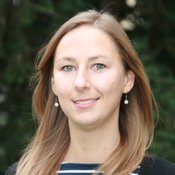
|
Corinna Geiger Corinna Geiger is an economic engineer and works as a scientist at the Passive House Institute since 2016. In her studies, she dealt intensively with the topics of energy-efficient planning and building as well as economics. Her main activity at the Passive House Institute is consulting and certification of buildings. She also administer the various course materials and teaches parts of the PHPP training courses.
|
|||
Workshop: PHPP variant calculation |
||||
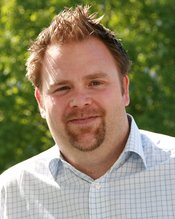
|
Jan Steiger Jan Steiger pursued a career as a traditional architect through his studies at the University of Stuttgart complemented with various internships. He became inspired by the Passive House Standard in 2004 while working at Michael Tribus Architecture in South Tyrol as internal project manager on energy efficiency and Passive House projects. Jan joined the Passive House Institute as a researcher in 2011, where he leads the development of PHPP and is thereby involved in the coordination of projects such as the DEEVi and the EU-funded project EuroPHit. Always seeking to provide a simple explanation of cost-effective and energy-efficient construction, Jan is also an experienced speaker and certifier of buildings, doors and building systems.
|
|||
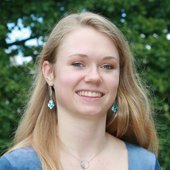
|
Camille Sifferlen Camille Sifferlen is a graduate architect from France, who has worked in the field of sustainable construction in her home country as well as in Spain, China, Australia and Germany. She is a particular advocate of the Passive House Standard, because it can be adapted to different climate zones and building types. Camille has worked at the Passive House Institute since 2015, where she mainly focuses on training and pilot projects in developing countries/hot climates. In addition to developing the e-learning platform, Camille regularly gives lectures and courses on energy efficiency and the planning tools PHPP/designPH.
|
|||
Workshop: designPH - from beginner to advanced user |
||||
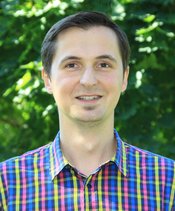
|
Dragoș Arnăutu Dragoș Arnăutu is an architect at the Passive House Institute in Darmstadt. He joined the Passive House team in 2012, working in the field of building consultancy and certification. He previously studied architecture at the Technical University of Cluj-Napoca, Romania, and was awarded a Deutsche Bundesstiftung Umwelt Internship at the Passive House Institute.
|
|||
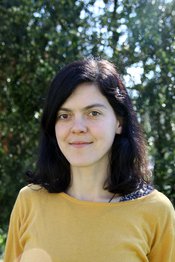
|
Gergina Radeva Gergina Radeva graduated with a master´s degree in architecture from the University of Applied Sciences in Erfurt, Germany. She became inspired by the Passive House Standard during her studies and joined the research team at the Passive House Institute right after her graduation in 2016. The main focus of her work is building consultancy and certification. Beside this, Gergina has also been involved in the research and development of designPH.
|
|||
Workshop: New ventilation concepts (in German) |
||||
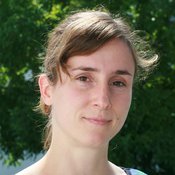
|
Kristin Bräunlich Kristin Bräunlich is a researcher at the Passive House Institute in Darmstadt, where she has worked since 2010 in the field of active ventilation. She previously studied Environmental Engineering in Glauchau, Germany. Following her studies, she worked for LMC Medical Components GmgH in the area of ventilation concepts for operating rooms in hospitals. She is currently involved in the certification of Passive House ventilation systems, several EU-funded projects and research projects on the topic of cost effective HVAC solutions. Furthermore, she is the project manager for a monitoring project examining different internal insulation solutions.
|
|||
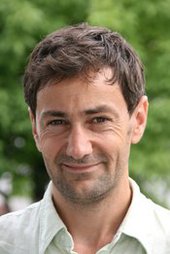
|
Oliver Kah Oliver Kah, a trained physicist, worked as a research associate at the University of Siegen between 1999 and 2001. His main focus was on the area of building physics and solar energy. Since 2001, he has worked at the Passive House Institute, where he deals with the energy efficiency potential of non-residential buildings, building technology and the development of energy balance methods.
|
|||
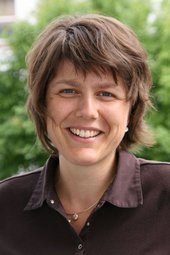
|
Tanja Schulz Tanja Schulz studied civil engineering at the Technical University of Darmstadt and has worked at the Passive House Institute since 2006. She focuses on energy optimisation of special non-residential buildings, for example schools, swimming baths and hospitals as well as the area of ventilation (new buildings and retrofits).
|
|||
Workshop: Air tightness and moisture control in various climates |
||||
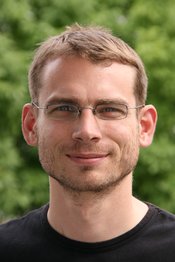
|
Wolfgang Hasper Wolfgang Hasper has been a scientist at the Passive House Institute since 2005, focusing on building monitoring, project consulting, as well as education and training. Before joining PHI in 2005, he trained as an architect and gained broad experience in practical construction, ranging from his own work as a carpenter and locksmith to site supervision on behalf of an architect. He continues to be involved in a number of consulting and research projects, for which on-site quality assurance is an important part of the work. Current challenges include the development of simplified techniques for post-occupancy building performance monitoring. This involves using specialist measuring equipment and data evaluation procedures to make systematic performance evaluations and optimisations more accessible for designers and building owners worldwide.
|
|||
Workshop: BIM based quality assuranceand efficiency design |
||||

|
Jan Steiger Jan Steiger pursued a career as a traditional architect through his studies at the University of Stuttgart complemented with various internships. He became inspired by the Passive House Standard in 2004 while working at Michael Tribus Architecture in South Tyrol as internal project manager on energy efficiency and Passive House projects. Jan joined the Passive House Institute as a researcher in 2011, where he leads the development of PHPP and is thereby involved in the coordination of projects such as the DEEVi and the EU-funded project EuroPHit. Always seeking to provide a simple explanation of cost-effective and energy-efficient construction, Jan is also an experienced speaker and certifier of buildings, doors and building systems.
|
|||
Workshop: Economics of energy efficiency (in German) |
||||
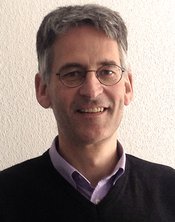
|
Berthold Kaufmann Dr Berthold Kaufman, a physicist by training, began his career in the field of solar thermal plant development and consulting. He has worked as a senior research scientist at the Passive House Institute http://www.passiv.de/en/index.php since 2000, conducting research on the thermal properties of buildings, their energy consumption and thermal flows for planning purposes as well as on the design of highly insulated windows and compact heat pump systems. Dr Kaufman regularly consults for architects and construction contractors on Passive House design for both new builds and retrofits and also serves as an expert for questions regarding Passive House economics and financial analysis. In addition to his consulting work and numerous research publications, Dr Kaufman frequently holds technical Passive House seminars, lectures and speeches for international audiences. |
|||
Workshop: Energy efficiency and renewables towards optimal solutions (in German) |
||||
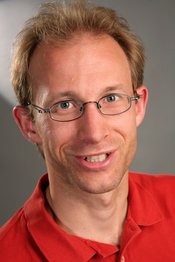
|
Benjamin Krick Dr Benjamin Krick works as a senior scientist at the Passive House Institute in Darmstadt, where he is head of the Component Certification department. His activities focus on the field of energy efficient, cost-effective windows and evaluation of the sustainable energy supply for buildings. Krick studied at the Darmstadt University of Applied Sciences and conducted research at the University of Kassel, where he received his PhD in 2008 in experimental construction. As a trainer and author of numerous papers and books, he publishes and distributes his knowledge on energy efficient, cost-effective, sustainable building.
|
|||
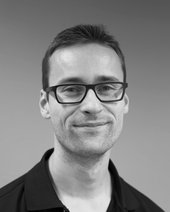
|
Raphaël Vibert Born in France, Raphaël Vibert works as a civil engineer at the renowned planning office Herz & Lang. In addition to Passive House design and Passive House certification, he also focuses on thermal building and plant simulation. His daily work looks at the safest and most economical ways of achieving the Passive House Standard with renewable energy systems for large residential and non-residential buildings. With the construction of his own wooden Passive House with electricity storage, together with Dieter Herz, he shows his conviction: "My Passive House Plus is my contribution to the energy transition and my financial security for the future".
|
|||
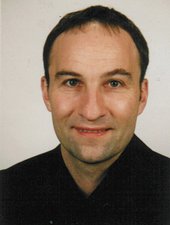
|
Andreas Miller Andreas studied Business and architecture in Würzburg. Following his studies he widened his knowledge at EZA! in Kempten becoming an energy consultant and Passive House designer. Andreas has also volunteered in regional energy initiatives and funding projects (e.g. CO²Contra). Since 2005 he has been working as a freelance energy consultant and architect. Economic and sustainable building and life are not a contradiction and renunciation.
|
|||
Workshop: Energy efficient hot water systems |
||||
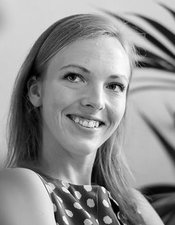
|
Jessica Grove-Smith Jessica Grove-Smith graduated with a master’s degree in physics (MPhys) from the University of Sussex in England. She has been part of the research team at the Passive House Institute in Darmstadt since 2008. Her responsibilities range from stationary and dynamic energy demand modelling, climate data for the PHPP and hygrothermal simulations of individual building components. The application of the Passive House concept for indoor swimming pools has also been a major focus of her work, as well as contributions to the renewable primary energy assessment method has been introduced for the new Passive House classes.
|
|||
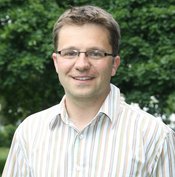
|
Oliver Ottinger Oliver Ottinger, a senior scientist at the Passive House Institute, studied physics at Johannes Gutenberg Universität Mainz and completed his PhD in material science at the Technical University of Darmstadt. He has been working at the Passive House Institute since 2013, focusing on a variety of national and international research projects. Oliver has considerable experience in predicting the energy demands of Passive House buildings using both static and dynamic simulations. In addition, he has attended numerous conferences, working groups and course lectures as a speaker, distributing the knowledge gained from research projects. |
|||
Workshop: Commissioning and performance optimisation (in German) |
||||

|
Wolfgang Hasper Wolfgang Hasper has been a scientist at the Passive House Institute since 2005, focusing on building monitoring, project consulting, as well as education and training. Before joining PHI in 2005, he trained as an architect and has gained broad experience in practical construction, ranging from his own work as a carpenter and locksmith to site supervision on behalf of an architect. He continues to be involved in a number of consulting and research projects, for which on-site quality assurance is an important part of the work. Current challenges include the development of simplified techniques for post-occupancy building performance monitoring. This involves using specialist measuring equipment and data evaluation procedures to make systematic performance evaluations and optimisations more accessible for designers and building owners worldwide.
|
|||
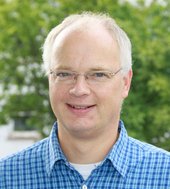
|
Søren Peper Søren Pepper studied environmental engineering in Hamburg, focusing his thesis work in 1995 on the comparison between actual consumption data and planned values of a multi-family low energy house. He has worked as a researcher at the Passive House Institute since 1998 where he coordinated the Research and Measurement group.Søren primarily focuses on monitoring buildings built to the Passive House Standard, both for new construction and retrofits. He has authored many research reports on a variety of different building types such as residential, schools and daycare centers, factories, office buildings and indoor swimming pools. Søren is also a specialist in airtightness and has worked on publications for airtightness measurement. He is a certified tester and a member of the asociation for airtightness in buildings (FLiB).
|
|||
Workshop: Cooling and dehumidification |
||||
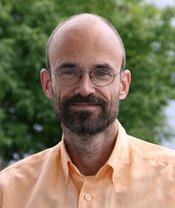
|
Jürgen Schnieders Jürgen Schnieders is a physicist who has been part of Passive House Institute's scientific staff since 1997. Apart from consulting on building projects, monitoring projects, developing PHPP as well as all kinds of simulations, he is particularly dedicated to applying the Passive House approach to warm and hot climates. Jürgen wrote his PhD thesis on "Passive Houses in South West Europe" and was project leader for several studies on Passive Houses in different climates.
|
|||
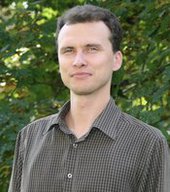
|
Tomas Mikeska Tomas Mikeska joined the team at Passive House Institute in 2014. He received his Phd degree in Civil Engineering at the Technical University of Denmark in 2015. Tomas has been focusing on energy efficiency in buildings during most of his studies and sees the Passive House concept as a very natural way of building houses. His areas of expertize are technical installations in buildings with special focus on heating and cooling solutions. At Passive House Institute he is involved in the development of certification schemes for heat pumps.
|
|||
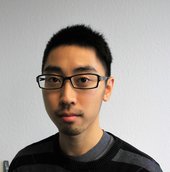
|
Sichen Sheng Sichen Sheng studied building and energy engineering in China and Germany, focusing on building energy efficiency and building services. Since 2017, he has been part of the research team at the Passive House Institute in Darmstadt. His responsibilities range from further developing the dynamic building simulation software Dynbil and consulting on various Chinese building projects. He also has special expertise in the cooling and dehumidification of Passive House buildings in warm and humid climate zones and related building services solutions. Moreover, he is involved in the development and support of IP-PHPP (imperial units) and PHPP CN.
|
|||
Workshop: High efficient building facades - cozy, practicable and profitable (in German) |
||||

|
Benjamin Krick Dr Benjamin Krick works as a senior scientist at the Passive House Institute in Darmstadt, where he is head of the Component Certification department. His activities focus on the field of energy efficient, cost-effective windows and evaluation of the sustainable energy supply for buildings. Krick studied at the Darmstadt University of Applied Sciences and conducted research at the University of Kassel, where he received his PhD in 2008 in experimental construction. As a trainer and author of numerous papers and books, he publishes and distributes his knowledge on energy efficient, cost-effective, sustainable building. |
|||

|
Franz Freundorfer Frank Junker is a skilled lawyer, who as CEO, is responsible for the management of ABG FRANKFURT HOLDING. Owning more than 52,000 apartments, the ABG offers living space for almost a quarter of Frankfurt's residents. The ABG also offers more than 33,000 other rental units. The holding prides itself on providing modern and energy-efficient infrastructure in its apartments. It works in project development and serves third-parties like the Fraport AG od the Messe Frankfurt GmbH with architectural and engineering services. More than 2,800 ABG dwellings have been built in the Passive House Standard.
|
|||
